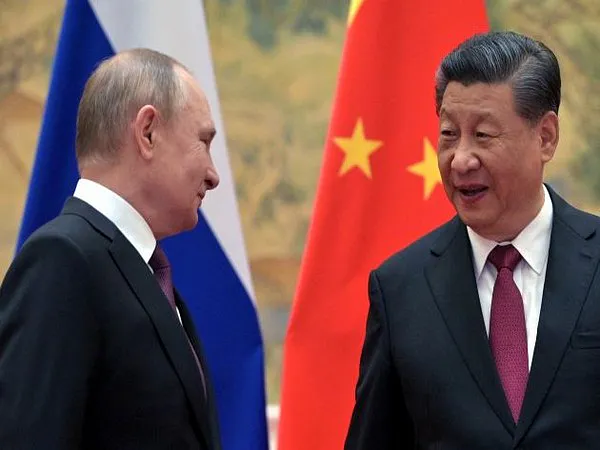China’s expanding use of technology to control dissent and its growing ability to attack satellite systems, control digital currencies and track individuals pose far deeper challenges for the West than Russian aggression.
A top British intelligence official Jeremy Fleming, who heads GCHQ — the British electronic intelligence-gathering and cyber agency warned of the growing Chinese threat on Tuesday.
David E Sanger, writing in The New York Times (NYT) said that Fleming was sceptical about how far China would go to support Russia’s aggression.
“I don’t think that this is a ‘relationship without limits,’” he said, using the term that President Vladimir Putin of Russia and President Xi Jinping of China employed when they met at the Beijing Olympics early this year, just before the invasion of Ukraine.
In light of Russia’s dismal battlefield performance and its brutality, he said, China “needs to be weighing up the advantages and disadvantages of continuing to align themselves strongly with Russia,” reported NYT.
Fleming’s agency plays an increasingly central role in tracking Russian communications and preparing for the day when China’s quantum computing advances may defeat the encryption used to protect both government and corporate communications, reported Sanger.
Until recent years, most European nations have been muted in their public critiques of Beijing and its ambitions, because trade with China became critical to growth, especially for Germany.
Britain even permitted Huawei, the Chinese telecommunications giant that the United States fears could pose a security threat, to provide some to Britain’s communications network — under some strict conditions — until sanctions imposed on the company by the United States made that impossible, reported NYT.
Fleming’s warnings come before the opening of a Communist Party congress starting in Beijing at which Xi Jinping is expected to be named to a third five-year term as the country’s top leader.
He said that in the case of China, this could be “the sliding-doors moment in history,” in which the United States and its allies may soon discover that they are too far behind in a series of critical technologies to maintain a military or technological edge over Beijing, reported NYT.
He described China’s move to develop central bank digital currencies that could be used to track transactions as a shift that could “enable China to partially evade the sort of international sanctions currently being applied to Putin’s regime in Russia.”
He said that was one example of how China was “learning the lessons” from the war in Ukraine, presumably to apply them if it decided to move against Taiwan and prompted further efforts by the US and its allies to isolate it economically, said Sanger.
Fleming also described China’s moves to build “a powerful anti-satellite capability, with a doctrine of denying other nations access to space in the event of a conflict.”
He accused China of trying to alter international technology standards to ease the tracking of individuals. It was part of its effort to repress dissent, even the speech of Chinese citizens living abroad.
But his biggest warning surrounded dependence on Chinese companies that are closely linked to the state, or that would have no choice but to turn over data on individuals upon demand by the Chinese authorities.
The Huawei experience, he said in the interview, “opened our eyes to the extent to which even the biggest businesses in China are ultimately wrapped up with the Chinese state” and have no choice but to comply “because of the way in which the Communist Party works and the national security laws operate.”
Last week, the Biden administration announced sweeping new limits on the sale of semiconductor technology to China, hoping to cripple Beijing’s access to critical technologies that are needed for supercomputers, advanced weapons and artificial intelligence applications, reported Sanger.
It was a sign of how fast the world’s two largest economies had become engaged in a clash over technological advantage, with the United States trying to establish a stranglehold on advanced computing and semiconductor technology that China views as essential to its own ambitions.

